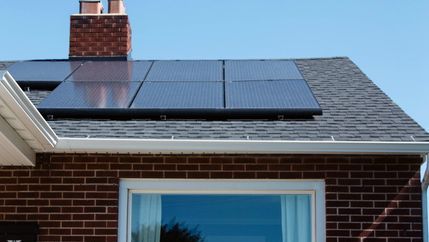
The Department of Finance’s review sought information and evidence on a range of technical issues to help inform the Department’s strategy. Since 15% of emissions in Northern Ireland come from buildings, reducing the environmental impact and energy efficiency of new buildings is vital for the country to reach net zero.
Unique local factors
In Northern Ireland, the median income is £28,939 and the average house price is £179,530. Both figures are significantly lower than in the rest of the UK, where median income is £35,000 and the average property costs £310,000.
On top of the rising cost of living, this means both homeowners and landlords will be less able to afford the costs of retrofitting or improving properties, and this must be taken into account when planning packages of financial support. In the case of landlords, being forced to make large capital investments in energy efficiency work may leave them no option but to raise rents to recoup their costs.
Propertymark calls for broad financial support and tax incentives to enable owners to retrofit their properties without incurring substantial cost.
Implementation is key to new efficiency metrics
The consultation includes plans to assess new homes based on the primary energy sources and emissions used to build them. Propertymark does not object to this in principle, however, once new metrics are introduced it is inevitable there will be a shortage of qualified professionals able to assess buildings and this should be taken into account when setting deadlines.
Furthermore, it is important that targets for different housing tenures are made clear at the earliest possible time and enough time and financial support is provided to help landlords and homeowners meet new requirements.
Lessons from other UK nations
Some actions taken by the UK Government for setting energy efficiency targets in England and Wales have failed to make an impact or have set unrealistic goals. EPC targets for privately rented homes were never given a definitive deadline and were ultimately scrapped after considerable push-back.
The approach taken by the UK and devolved Governments has often neglected the diversity of housing stock. Grants, targets and schemes often fail to take into account the different age, condition and size of properties which leads to an ineffective one-size-fits-all approach that does not deliver the number of energy efficient properties needed, particularly when retrofitting existing stock.





